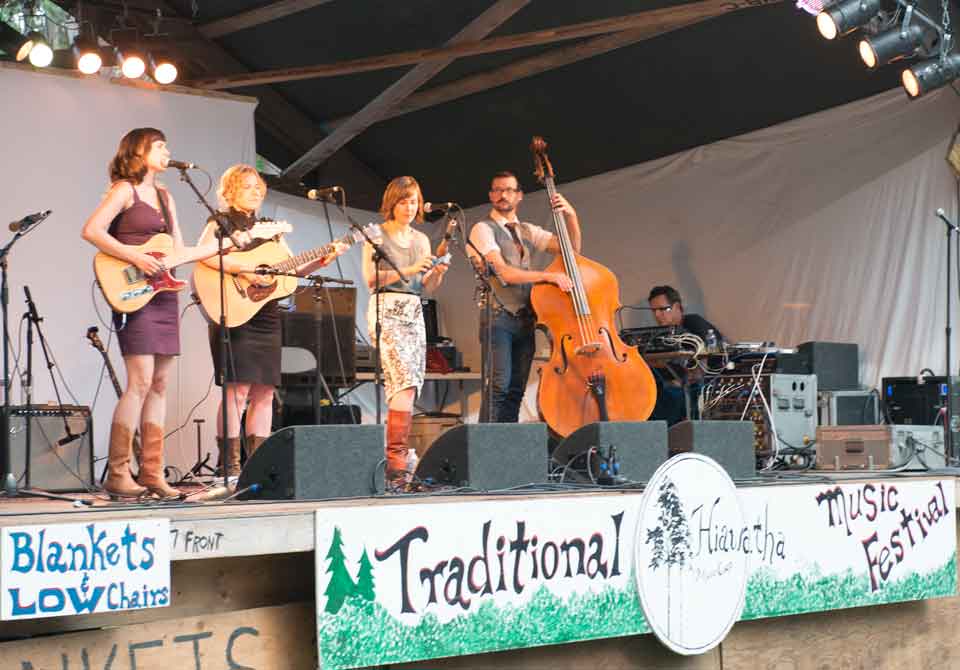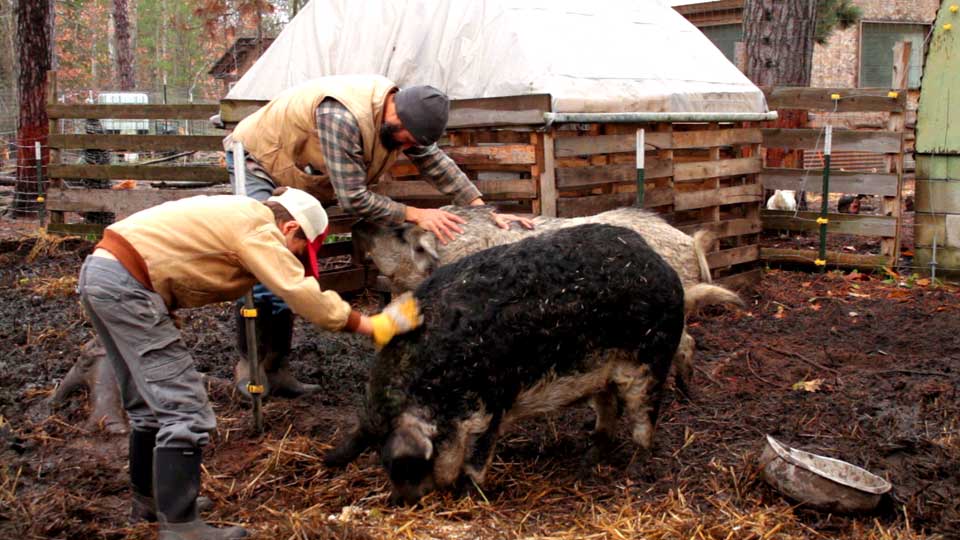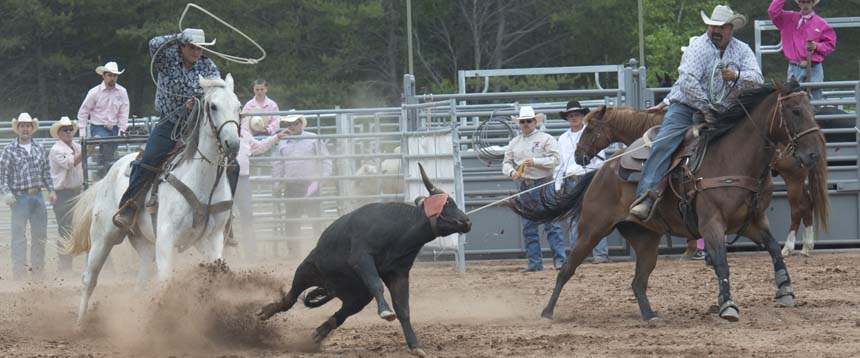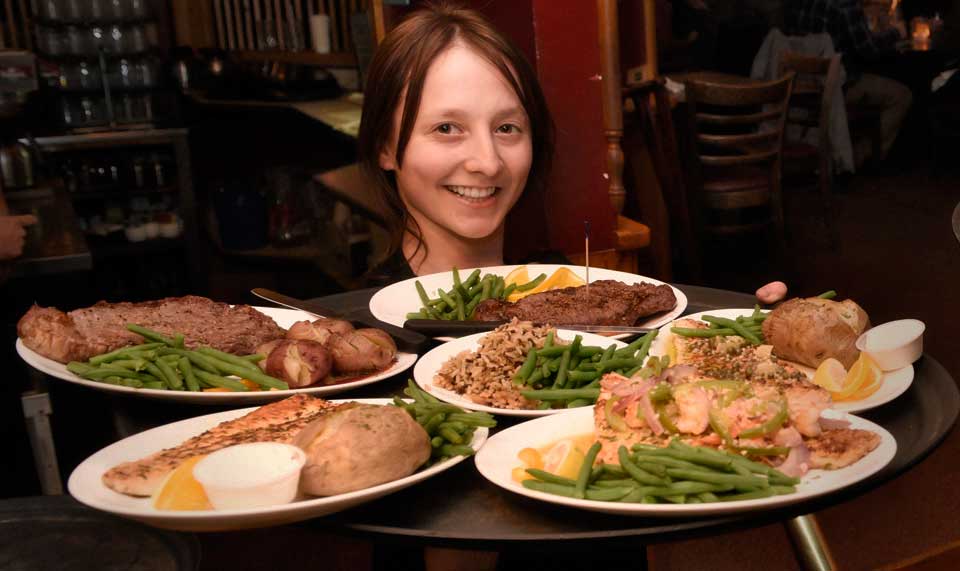Tastes of Autumn
FRESH APPLE CIDER MINGLES WITH THE FEELINGS OF FALL IN THE U.P.
Sipping cider, tart cold rush against tongue and pallet, waves of gratefulness washed through me. I had touched, even for just a moment, each apple crushed to make this cider, flavoring it with memory.
I did another mental inventory of our foodstuffs for the weekend: the last two packages of the previous fall’s frozen venison, a cabbage from my father’s garden, local onions and garlic, a half-gallon of October-a-year-agos’ cider, a package of instant rice, local eggs, and two odd pieces of Trenary Toast squirreled away atop a paper bag of miscellaneous stuff.
Beyond the window’s smudged glare, yellow aspen leaves quivered in a western breeze.
My boyfriend, Orson, and I were taking two days at the Conglomerate Falls cabin in the Keweenaw to celebrate his birthday and take in the smell of fallen leaves in an Upper Peninsula woods. The cabin had solar power, propane and woodstove, and quick access to the pebbled, winding falls that gave the place its’ name. It was purchased by the North Woods Conservancy, a non-profit land trust in the Keweenaw Peninsula, and proceeds from the cabin rental go towards helping fund the conservancy’s land preservation in the area. We were looking forward to the tranquility of our own 120 acres for three whole days.
Orson held up his mason jar and we clinked glasses. The sharp, sweet taste that tempted early American frontiersman to plant their fortune’s worth of seedlings in newly sown soil transported me to the day, a year or so ago, that we harvested apples and made the cider.
It was raining, but the air steamed from our breath and I sweated beneath wooly layers as we bent and straightened, picking apples from the ground. We paid obeisance to Idunn, Norse goddess of apples and youth while our brown hunting dog ran an ingrained, instinctual grid through chipmunked orchards, oblivious as rain turned to snow. Macintosh-crosses, Wolf River, and unnamed wild varieties plunked into bushel baskets. We unbent our backs with stretches and groans, stunned silent, contrasting red apples against a late-Fall gray sky. I bit into yet another apple, snap-crunch and rush of juice, a moment re-imagined in every fall I can remember, and probably some before that. A moment as much a part of me as my hand clutching the ripe fruit.
Orson and I trundled the apple-laden cart to where the old cider press was tucked into the garage doorway, out of the cutting northwest wind. Momma had pulled up her hood and Dad swiped at his nose with a wrinkled red hanky. The old apple press, a wedding gift my parents received 43 years ago, was like a seasonal family member. Other than a little leak in a corner of the catch-pan and a wobble to the wooden apple basket, the press still made cider so sweet it called to wasps from miles around.
Orson grinned, grasping the worn-wooden handle that spun the wheel that whirled the grinder that smooshed the apples, core and all, into juicy pulp caught in an open-ended wooden barrel lined with apple-dyed cloth.
“I’ll get some cups,” Momma said, raising her voice over the wind. Dad set another crate of apples near the press, and I readied the first apple for its plunge into the crusher.
“Ready?” Orson asked with a rakish grin, knees bent and back braced, hands in place around the handle hundreds of hands wore smooth decades of falls’ preceding.
“Go!” I said, tossing the first apple as the wheel began to spin. I pulled apples out of a variety of baskets and crates, diversifying the mix. The more varied the mash, the tastier the cider.
The pioneers knew this too, as they mixed and mashed their apples. Many were tempted by Dionysus to ferment their cider, bringing hard liquor to the frontier. It seems not only Eve was lured by apples’ sweet enticements.
Many have tasted apple juice’s saccharine-sweet sugar-water, but once you’ve tasted fresh cider, no apple in liquid form can compete. The flavors of cider are complex, changing from batch to batch, and day by day, becoming more tart, richer, the color deepening into a dark amber—the essence of the apple tree itself.
The cider we sipped in the Conglomerate Falls cabin, two hours from our home in Marquette, and another two from Curtis, where the cider was made a year ago, was a perfect blend of sharp and sweet.
I awoke our last morning at the cabin, the morning of Orson’s birthday, my mind already ticking off ingredients and ideas for a special birthday breakfast. I remembered the two pieces of thick, white Trenary Toast bread. I remembered the cider container left on the porch step to keep cool, dappled with remnants of last night’s rain. There was still over half a head of cabbage, a bit of onion, a thick wedge of garlic clove, and four eggs. We had plenty of butter and oil.
I had packed only the large black Teflon wok, but I was able to make it work by cooking in stages: caramelizing onions and green cabbage in butter with several glugs from the cider jug, and setting them aside on a plate when they turned golden brown; toasting bread in buttery vegetable juices, giving enough time for thin slivers of cheddar cheese to melt on the bread’s warm flaky crust; frying eggs, sunny-side-up and speckled with coarse pepper and sea salt.
Working on paper plates, I piled cabbage mixture onto toast, topping it with eggs.
“Happy Birthday,” I said, presenting Orson his plate with a flourish. We ate propped against down blankets, facing two windows that displayed maples, aspen, and hemlock nodding colorful heads in a growing breeze.
Our first bites were fall deconstructed and concentrated: leaves, orange-yolk yellow. Cider, crisp as clear fall nights when the stars burn their brightest. Homey toast crunch, and cabbage, winter’s lettuce, lingering sweet and buttery against our tongues.
Fall means food for my family—time spent hurriedly harvesting and preserving a short Northern summer’s worth of produce.
Our freezer held strawberries, raspberries, and blueberries, summer flavored memories of Orson laughing, lips berry-stained. Two frozen chickens filled the freezer’s meat drawer from an afternoon spent butchering on a friend’s farm. The pantry shelves were pickle-jar heavy: turnips, beans, beets, and cucumbers from my father’s garden. Half gallon jugs, cider heavy, awaited a cold night when hot cider tastes best.
Like a pioneer I took stock of our food for the winter. Comforted, I turned back to my toast, tastes of autumn, and yellow aspen leaves, one cold night away from falling.


















You must be logged in to post a comment Login